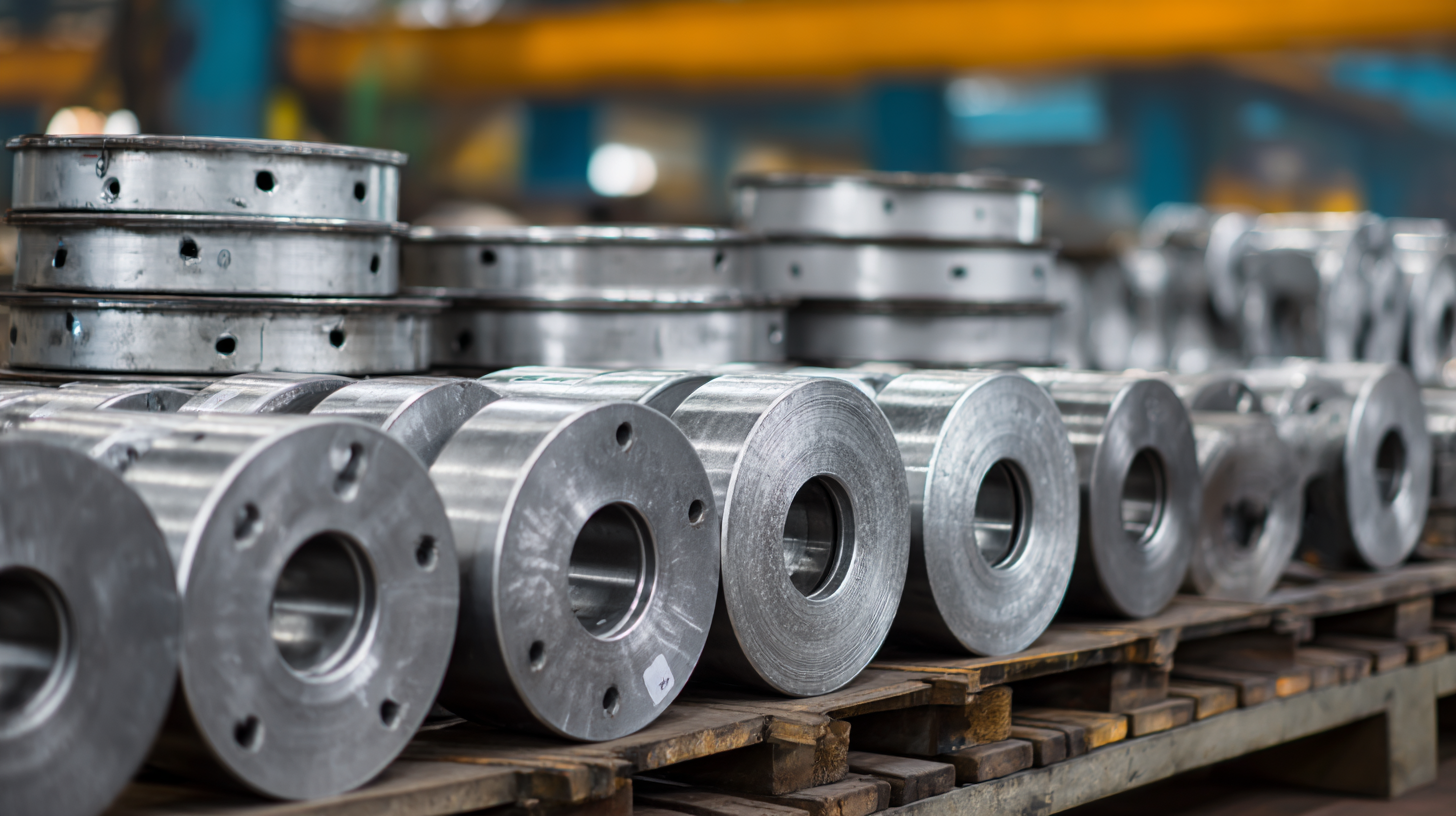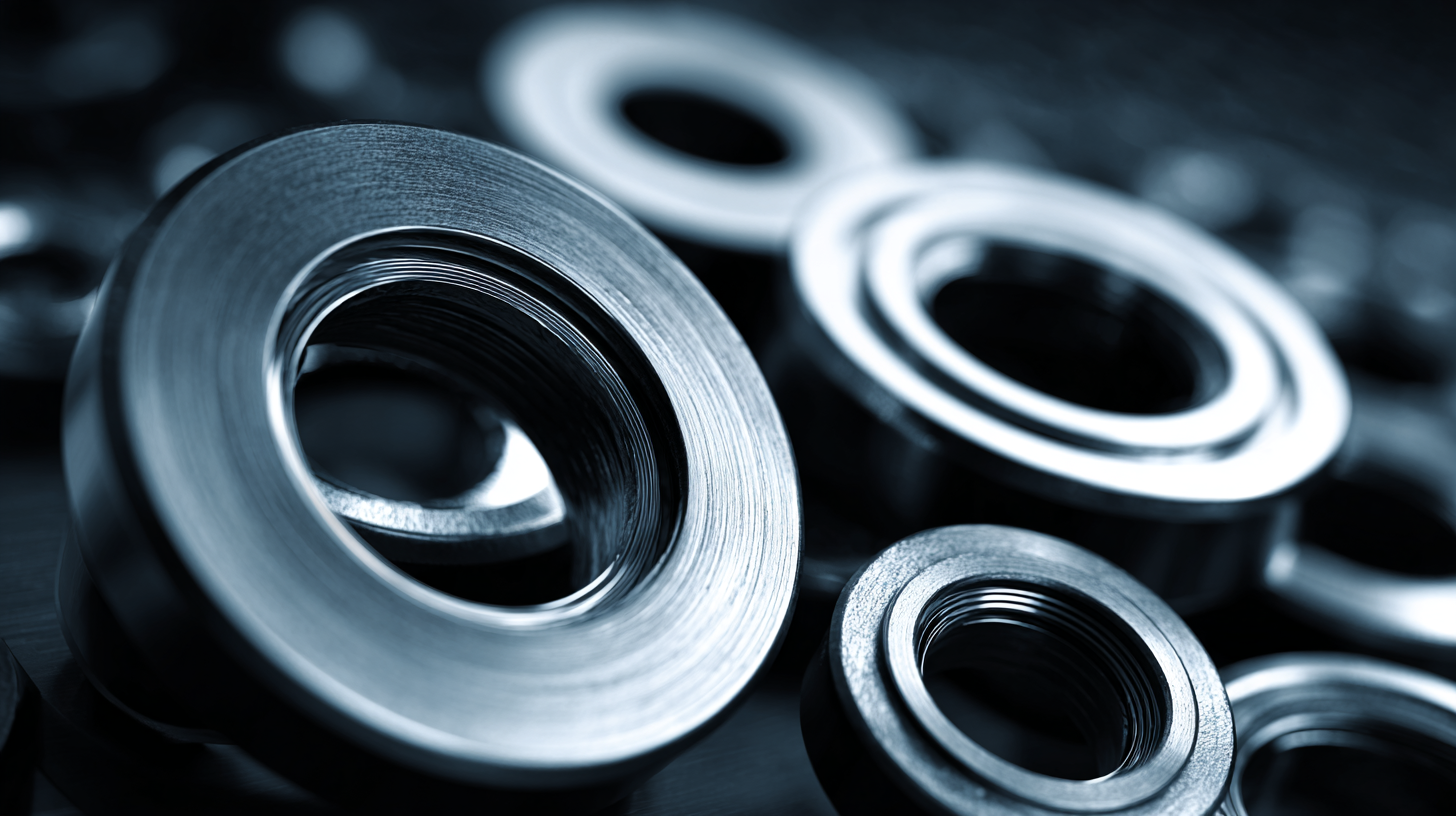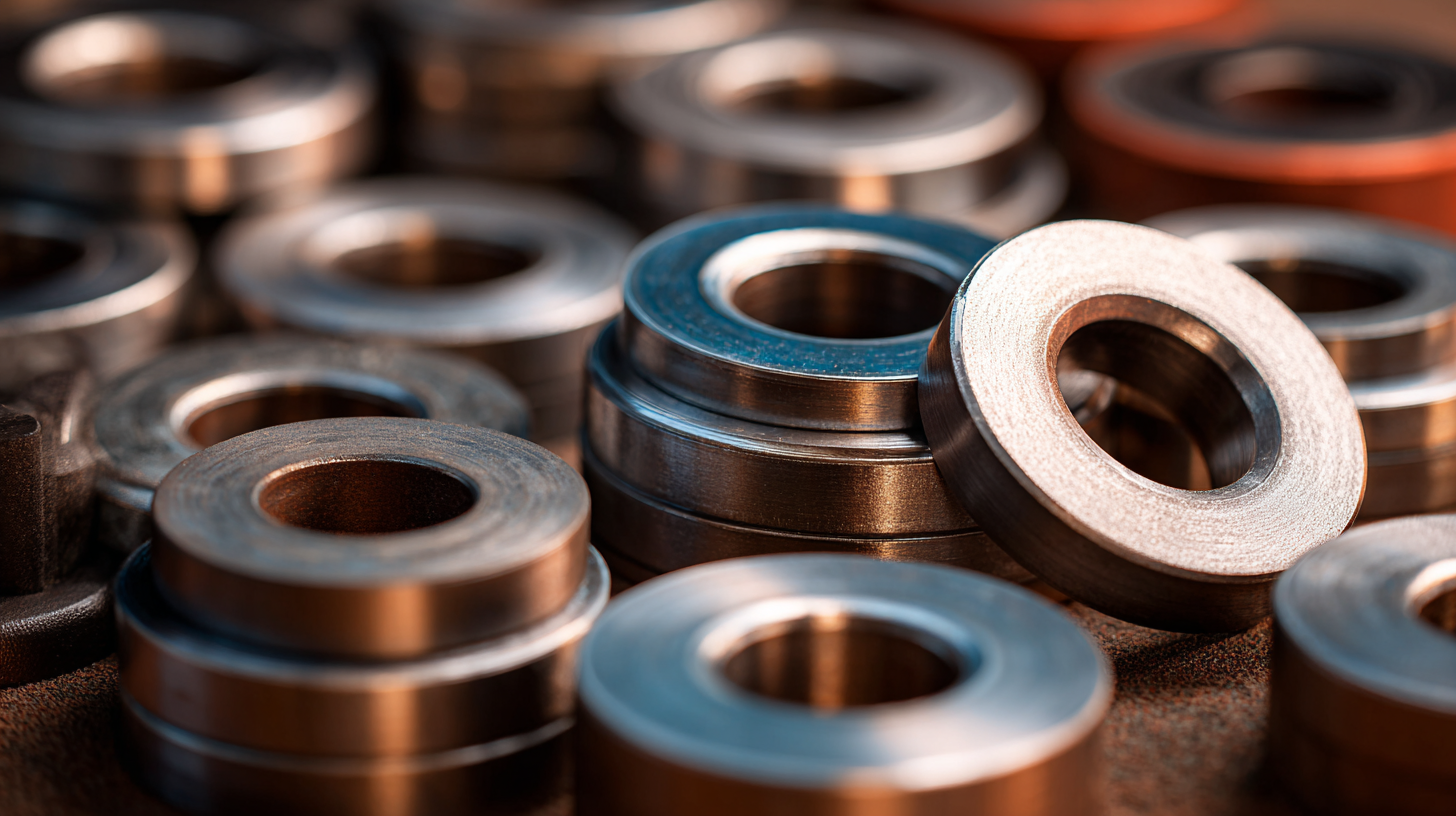In the ever-evolving landscape of industrial applications, the importance of best steel gaskets cannot be overstated. As industries strive for enhanced efficiency and reliability, steel gaskets have emerged as critical components that significantly influence operational performance. According to the Global Gasket Market Report 2021, the total market for gaskets is projected to grow at a CAGR of 4.5%, reaching approximately $5 billion by 2027, highlighting the rising demand for high-quality sealing solutions. Steel gaskets, known for their durability and resistance to high temperatures and pressures, play a pivotal role in maintaining system integrity across various sectors, from petrochemicals to automotive manufacturing. Their ability to offer leak-proof seals in challenging environments not only reduces the risk of costly downtime but also ensures compliance with stringent safety standards. As we approach Industry 2025, the adoption of advanced materials and technologies in the production of steel gaskets will likely set a new benchmark for performance and sustainability in industrial applications.

In today's fast-paced industrial landscape, the efficiency of operations is paramount, and steel gaskets play a crucial role in achieving this goal. These components are essential in creating reliable seals in equipment ranging from pipelines to machinery. Their robust nature allows them to withstand extreme temperatures and pressures, minimizing the risk of leaks and breakdowns. By providing a tight seal, steel gaskets ensure that fluids and gases are contained, which not only enhances safety but also reduces maintenance costs and downtime.

Moreover, the durability of steel gaskets contributes significantly to the longevity of industrial machinery. Unlike other gasket materials, which may degrade over time or under stress, steel gaskets maintain their integrity, thus supporting consistent performance. This reliability translates into increased productivity, as equipment operates more smoothly and efficiently. In industries where prolonged operational periods are crucial, such as oil and gas or manufacturing, investing in high-quality steel gaskets can yield substantial returns in terms of both time and resources. This highlights the significance of choosing the right materials to bolster industrial efficiency and sustainability.
Steel gaskets play a crucial role in various industrial applications due to their exceptional properties. One of the key characteristics that make steel gaskets ideal for industrial use is their remarkable strength and durability. Unlike other materials, steel gaskets can withstand high pressures and extreme temperatures, making them suitable for heavy-duty environments such as oil and gas, chemical processing, and power generation. Additionally, their resistance to corrosion and wear ensures a longer lifespan, thereby reducing the frequency of maintenance and replacements.
When selecting steel gaskets, it’s essential to consider specific factors for optimal performance. For instance, ensure the gasket is compatible with the fluids involved in your application, as chemical interactions can lead to premature failure. Moreover, proper installation techniques should be followed to prevent leakage and ensure a tight seal.
Another tip is to regularly inspect steel gaskets for any signs of wear or damage. Early detection of potential issues can save time and resources. By recognizing the unique characteristics of steel gaskets and implementing best practices, industries can enhance their operational efficiency and reliability.
When it comes to industrial applications, choosing the right gasket material is crucial for ensuring optimal performance and preventing leaks. Steel gaskets are often favored over other types, such as rubber or composite gaskets, due to their robustness and durability. Unlike rubber, which can degrade over time with exposure to heat and chemicals, steel gaskets provide superior resistance to extreme temperatures and corrosive substances, making them ideal for high-pressure environments.
**Tip 1:** When selecting a gasket, consider the working conditions—temperature, pressure, and chemical exposure. Steel gaskets excel in high-stress situations, while softer materials might suffice in less demanding applications.
Moreover, steel gaskets have a higher load-bearing capacity compared to their softer counterparts. This means they can withstand greater compressive forces without deforming, a significant advantage in systems that require a reliable seal under tough conditions. In contrast, other gasket materials might compress too much, leading to premature failure or leaks.
**Tip 2:** Always assess the compatibility of the gasket material with your specific application. A thorough understanding of the operating environment is essential to prevent gasket failure and costly downtimes.
| Gasket Type | Material | Temperature Resistance (°C) | Pressure Resistance (MPa) | Typical Uses | Advantages | Disadvantages |
|---|---|---|---|---|---|---|
| Steel Gaskets | Steel | 540 | 70 | Pipelines, Flanges | High strength, Durability | Corrosion potential, Heavier |
| PTFE Gaskets | PTFE | 260 | 20 | Chemical applications | Excellent chemical resistance | Lower strength than metal gaskets |
| Rubber Gaskets | Rubber | 100 | 10 | Domestic and low-pressure applications | Flexible, Easy to install | Limited temperature and pressure range |
| Cork Gaskets | Cork | 80 | 5 | Low-pressure applications | Cost-effective | Poor durability |
Steel gaskets play a crucial role in a wide range of industrial applications, ensuring the integrity and efficiency of machinery and systems. In the automotive industry, for instance, steel gaskets are essential components in engines, where they provide a tight seal between different engine parts. This prevents leaks of fluids and gases and maintains optimal pressure, which is vital for performance and fuel efficiency. The durability and strength of steel gaskets make them ideal for withstanding the high temperatures and pressures found in automotive applications.
In the oil and gas sector, steel gaskets are indispensable in pipelines and drilling equipment. They ensure leak-tight seals in high-pressure and corrosive environments, safeguarding against hazardous spills and improving safety measures. Similarly, in the chemical industry, the reliability of steel gaskets in reactors and storage tanks is paramount, as they prevent chemical leaks that could lead to dangerous situations. The versatility and robustness of steel gaskets make them suitable for these demanding conditions, contributing significantly to operational efficiency and safety across various industries.

The role of Chinese manufacturers in advancing steel gasket technology cannot be overstated. As the demand for high-quality gaskets grows across various industries such as automotive, aerospace, and oil and gas, these manufacturers are at the forefront of innovation. According to industry reports, the gaskets market is projected to reach a size of USD 8.3 billion by 2026, fueled by the increasing need for resilient materials capable of withstanding extreme conditions. Chinese companies are leveraging advancements in metal fabrication and research into new composite materials, positioning themselves as key players in the global market.
When selecting steel gaskets for industrial use, consider these tips: first, ensure the gasket material matches the specific chemical and temperature requirements of your application. A mismatch can lead to premature failures and costly downtime. Additionally, investigate the manufacturer's reputation for quality and reliability, as well as their commitment to continuous improvement in gasket technology.
Furthermore, take advantage of the growing availability of metal 3D printing technologies. These innovations allow for the production of complex gasket designs that traditional manufacturing methods may not achieve, optimizing seal performance and longevity. Adopting modern techniques can keep your operations competitive in an ever-evolving industrial landscape.
